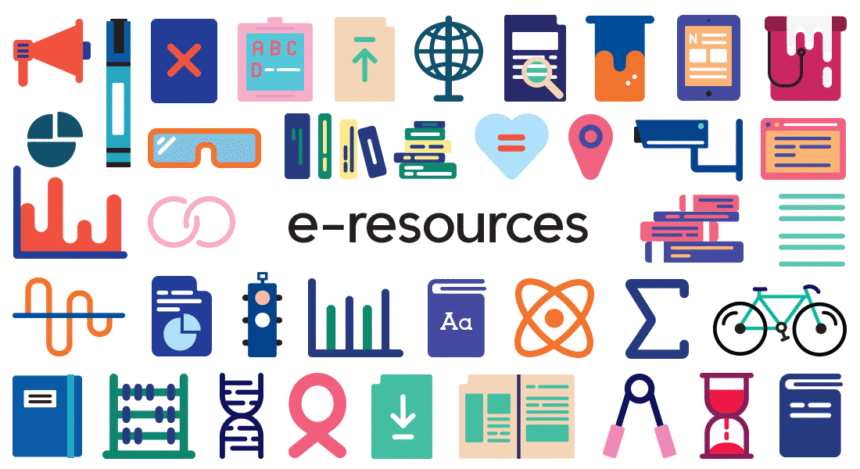Unlocking the Power of Online Library Resources
In the digital age, online library resources have become an essential part of modern education and research. These resources provide access to a wealth of information, from academic journals and eBooks to video lectures and databases. With the right tools and strategies, students, researchers, and lifelong learners can access knowledge from anywhere in the world. This guide will explore the value of online library resources and how to make the most of them.

What Are Online Library Resources?
Online library resources refer to digital materials and services that libraries offer via the internet. These include eBooks, academic journals, research databases, digital archives, video tutorials, and much more. Unlike physical libraries, online resources provide 24/7 access, allowing users to explore a broad range of topics without needing to be on-site.
By subscribing to various online platforms and databases, libraries make it easier for individuals to conduct research, study, and stay updated in their fields of interest.
Benefits of Using Online Library Resources
The advantages of online libraries go far beyond simply accessing books. Here are some of the key benefits of using these resources:
1. Access Anytime, Anywhere
With online library resources, you are no longer restricted by location or time. Whether you’re at home, in a café, or on the go, you can access books, journals, and articles with just a few clicks.
2. Wide Range of Resources
From peer-reviewed journals to research papers, and educational videos to reference materials, online libraries provide a diverse selection of content. This allows users to access specialized content across various subjects and fields of study.
3. Searchable and Organized
Online libraries offer powerful search tools that allow you to find resources quickly. Rather than sorting through physical shelves, you can search by keywords, titles, authors, or subjects to get the information you need efficiently.
4. Updated Content
With online libraries, you can access the latest information and updates in your area of study. Whether it’s newly published articles, research findings, or the latest editions of textbooks, these libraries ensure you stay up-to-date.

Popular Online Library Resources
Various online library platforms cater to different needs, whether for academic research, leisure reading, or professional development. Here are some popular ones:
1. Google Scholar
Google Scholar is a free-to-use search engine that indexes scholarly articles, theses, books, and conference papers. It’s a great starting point for anyone looking for academic research.
2. JSTOR
JSTOR is an online database that provides access to thousands of academic journals, books, and primary sources in various fields, including humanities, social sciences, and natural sciences.
3. Project MUSE
Project MUSE provides access to full-text academic journals and eBooks in the humanities and social sciences. It’s particularly useful for researchers looking for peer-reviewed content.
4. PubMed
PubMed is a free resource primarily focused on life sciences and biomedical literature. It’s ideal for health-related research, offering access to peer-reviewed articles and clinical studies.
5. EBSCOhost
EBSCOhost is a database that offers access to thousands of academic journals, eBooks, and research articles across a variety of disciplines. It is widely used by libraries around the world.
6. LibGen (Library Genesis)
LibGen is a digital library that offers free access to millions of eBooks, including textbooks, research papers, and academic articles. It is often used by students and researchers to access hard-to-find materials.
How to Use Online Library Resources Effectively
While online libraries provide vast amounts of information, it’s essential to use them effectively to get the most out of these tools. Here are some strategies:
1. Familiarize Yourself with Library Tools
Most online libraries provide tutorials or help sections that explain how to navigate their tools. Learning how to use search filters, citation generators, and access features will help you make the most of the available resources.
2. Use Advanced Search Features
Online libraries often have advanced search options that let you refine your search by criteria like date, author, subject, or resource type. Mastering these features will help you locate the most relevant information more efficiently.
3. Organize Your Findings
If you’re working on a large project, it’s easy to get lost in the wealth of available resources. Organize your findings by saving important articles, creating bookmarks, or using citation management tools like Zotero or EndNote.
4. Check for Access Restrictions
Some resources may require a subscription or specific permissions for access. Many universities provide free access to students, so check with your institution to see if you have access to premium content.
5. Evaluate Your Sources
Not all online resources are created equal. Always ensure that your sources are credible and peer-reviewed. Using reliable, well-established platforms like JSTOR and Google Scholar can help guarantee the quality of the materials you use.
How to Cite Online Library Resources
When you use online library resources, it’s important to cite them properly to give credit to the original authors. Here’s a brief overview of how to cite different types of resources:
-
Books: Use the author’s last name, first name, title of the book, edition (if applicable), publisher, and year of publication.
-
Journal Articles: Include the author(s), title of the article, journal name, volume and issue number, and the page range.
-
Websites: Cite the name of the website, the title of the webpage, the date it was published, and the URL.
Common Citation Styles:
-
APA: Common in the social sciences and education.
-
MLA: Often used in the humanities.
-
Chicago/Turabian: Preferred in history and some other disciplines.
FAQs on Online Library Resources
1. Are online library resources free to use?
Some online libraries, like Google Scholar and PubMed, are free to access. However, many academic resources require a subscription, which can often be accessed through universities or public libraries.
2. Can I download eBooks from online libraries?
Yes, many online libraries allow you to download eBooks or access them directly through their platforms. However, make sure to respect copyright laws and only download materials legally.
3. Do online libraries offer resources for all subjects?
Yes, online libraries cover a broad range of subjects, including humanities, social sciences, natural sciences, and technology. Each library may specialize in certain fields, so explore multiple platforms for comprehensive research.
4. How can I access an online library if I’m not affiliated with an institution?
Many public libraries offer access to online databases for their members. You can also explore open-access platforms like PubMed and Google Scholar for freely available research.
Conclusion
In today’s digital world, online library resources are a powerful tool for students, researchers, and lifelong learners. By taking advantage of these resources, you can gain access to a world of knowledge, improve your research skills, and stay up-to-date in your field of interest. Whether you’re looking for academic journals, textbooks, or research papers, the internet offers a wealth of information at your fingertips.
Start exploring today, and unlock the full potential of online libraries to enhance your learning journey.











